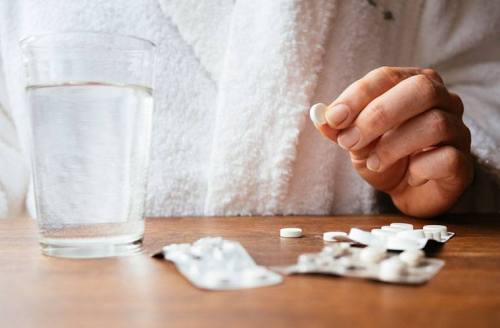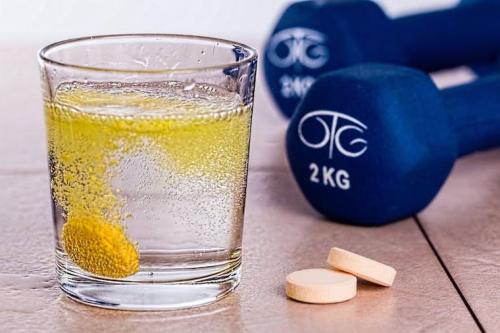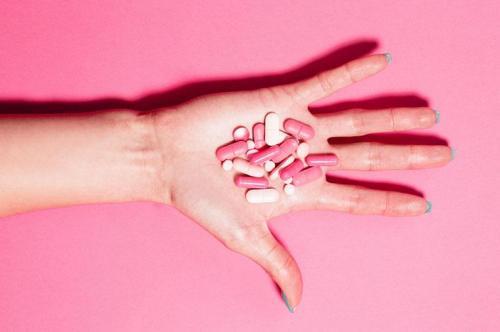Dr. Regan Lucas Bailey, PhD, RD, MPH, CPH, who is an associate professor of nutrition science at Purdue University, has a bottle of Centrum Silver for Men on her desk. “I confiscated it from my dad,” she says. Recently, he was admitted to the hospital for too-high levels of vitamin B12. “I asked, ‘Dad, what are you doing?’ Then I looked at this product and it has 1,667 percent of the daily value of B12,” Dr. Bailey says. “And he was taking that on top of another supplement that had B12 in it, too.”
When it comes to vitamins, the primary worry most people have is that they aren’t getting enough of what their body needs—which is completely valid, because many aren’t. But it’s possible to overdo it, too. Here, Dr. Bailey gives her best tips on how to take supplements safely.
Are you going overboard with supplements? Here’s how to know for sure.

Who needs supplements
First things first: How do you even know if you should be taking a supplement—and if you do need one, how do you know exactly which and how much you should take? “Anyone who is eliminating entire groups of food might need a dietary supplement,” our expert says. “If you’re dairy-free, you might not be getting enough calcium and vitamin D, or if you’re gluten-free, you might not be eating a whole lot of foods that are fortified with B vitamins.”
To get a sense of how many micro- and macronutrients, like protein and healthy fats, you’re eating, Dr. Bailey recommends using an app to track your eating habits for a typical week. “The U.S. Department of Agriculture has one that’s free called SuperTracker,” she says. (MyFitnessPal is another popular one.) You just log your meals and snacks, and the app calculates how much of each vitamin you’re getting—and whether it’s enough.
Once you know what you need more of, the next logical step is to add supplements of those vitamins to your daily routine. “Supplements have labels that indicate how much one dose is of the needed recommended diet, so that’s where you can fill in the gap,” Dr. Bailey says, adding that aiming to get 100 percent is a good barometer to go by. The problem comes when you don’t track the percentage…

Track your intake
“People who stack products are at the most risk of getting too much of a nutrient,” Dr. Bailey says. So if you’re popping a multivitamin in addition to specific ones, she means you. According to Dr. Bailey, the key is to check the daily recommended amount percentages in the different supplements you’re taking; if your diet is pretty healthy, there’s typically not a reason for the total to exceed 100 percent.
And it’s not just vitamins you should tally: Even macronutrients can be a danger if you consume them in excess. Dr. Bailey says many athletes looking to gain more muscle or increase performance stack protein products, fueling up on powders, bars, and capsules. “Getting too much could result in kidney failure, so you want to be aware of your intake for that, too.”

Know the warning signs
So, what’s the first physical indicator that you’re getting too much of something? Dr. Bailey says each nutrient has different red flags, but the Office of Dietary Supplements—which is connected to the National Institute of Health—has some pretty amazing fact sheets that lay everything out in great detail.
“They explain how much you need of everything based on how old you are, your gender, and if you’re pregnant or lactating,” she says. “Plus, you can see all the available science on each vitamin, so they really do all the homework for you.” Whenever you add a supplement to your diet, it’s a good idea to check out the fact pages and get familiar with the first signs you’re overloading your system.
When used in the right way, supplements can be awesome tools to help you feel amazing. In the end, it all comes down to awareness. Being mindful of what you’re putting in your body isn’t just good advice when it comes to food—the same applies to your vitamin regime, too.
One popular OTC everyone seems to be popping: probiotics. Here’s how to find the right one for you. And getting more of this vitamin could be the key to saying goodbye to bloating for good.
Sign Up for Our Daily Newsletter
Get all the latest in wellness, trends, food, fitness, beauty, and more delivered right to your inbox.
Got it, you've been added to our email list.










